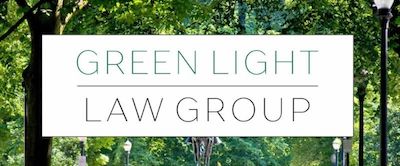AUTHOR: ALICIA ALTENAU, GREEN LIGHT LAW GROUP

After a significant outcry by the hemp community, the USDA is backing down from its requirement that all hemp be tested at DEA-registered labs for the 2020 season. This is great news for farmers for the current year, as hemp producers will be allowed to use the established, local labs that already exist provided the labs have the capacity to test for Total THC on a post-decarboxylated basis. Oregon alone has 21 labs accredited for potency testing by the state, so the requirement that all testing had to be done at one of the 47 DEA-registered labs almost ensured that 2020 crops would go unharvested due to long wait times for testing.
However, hemp producers should be aware that the USDA expects to begin enforcing the requirement to use DEA-registered labs for the 2021 growing season. Whether this will cause the kind of delays originally anticipated by opposition to the rule will depend on how quickly DEA will be able to increase the number of DEA-registered labs from the current 47. Even with increases to the number of DEA-registered labs, there is still the question of whether there will be sufficient lab capacity to test all the crops that will be required to be tested in 2021, given the potential increase in hemp farms in states where previously hemp was not allowed.
While the USDA is still requiring that non-compliant crops be destroyed, it is allowing hemp producers to use cheaper, on-farm disposal methods, including plowing under, mulching, discing, or burning. Farmers should check local disposal laws (particularly any air-quality or burn bans) if any product must be disposed of after testing.
Head of FDA Comments Show Encouraging Direction
Dr. Stephen Hahn, Commissioner of the FDA gave a speech to the National Association of State Departments of Agriculture (NASDA) on Wednesday acknowledging that Americans are interested in CBD products, and that the FDA has a role to play in ensuring the safety of the products.
The FDA has long taken the stance that, other than Epidiolex, FDA does not have the authority to regulate hemp CBD consumer products. That has left a lot of manufacturers, retailers, consumers and products in a legal limbo regarding the regulations surrounding CBD and hemp consumer products. This could be a sign that FDA may, in the future, take a more reasonable regulatory stance. While federal government regulations are often criticized for being overbearing and wrapping businesses up in red tape, there’s an argument that FDA oversight of the CBD market could in fact open that market further. FDA regulation could provide more stable paths to market for a variety of CBD products that currently may have some questions surrounding their legality.




